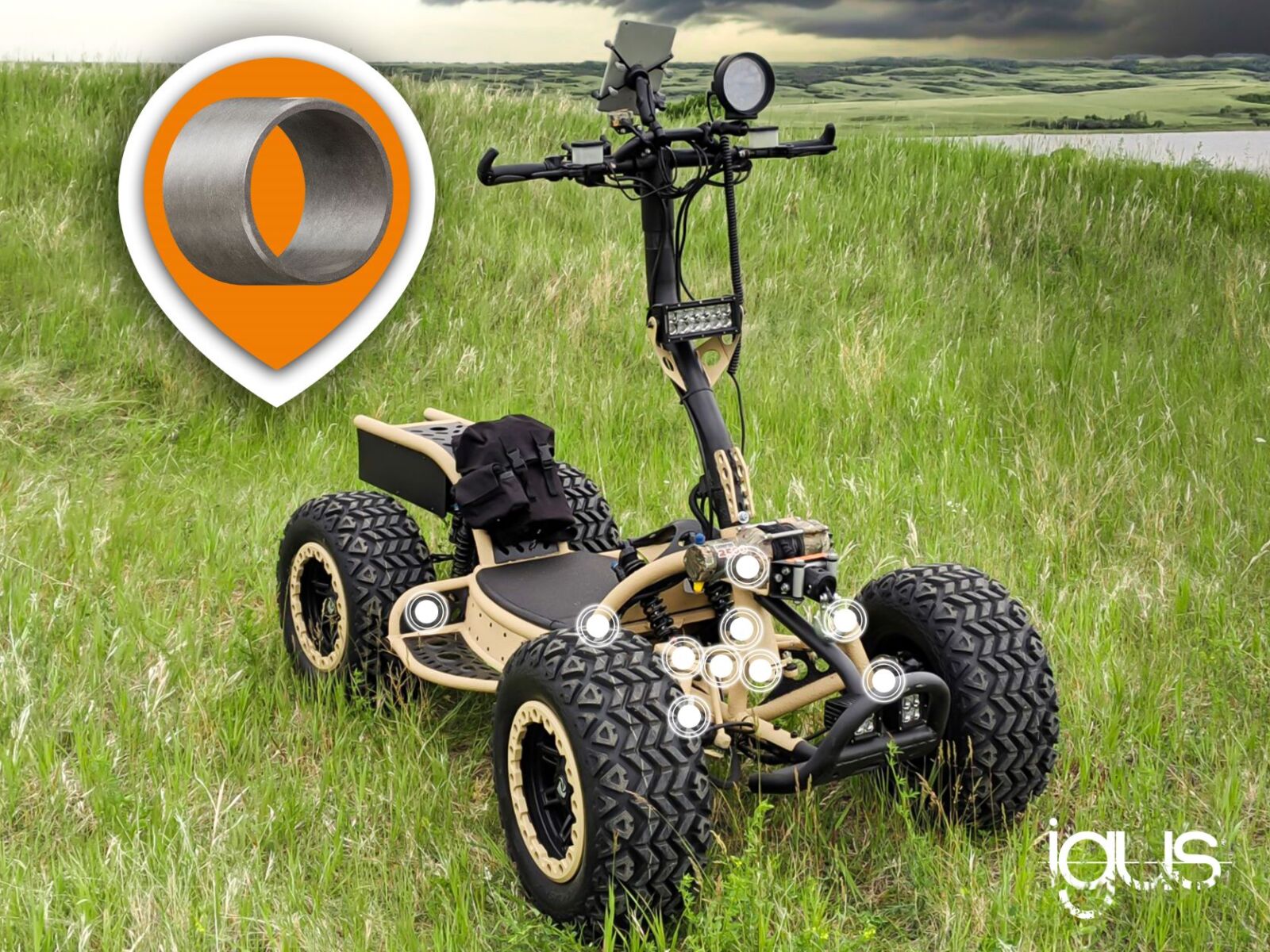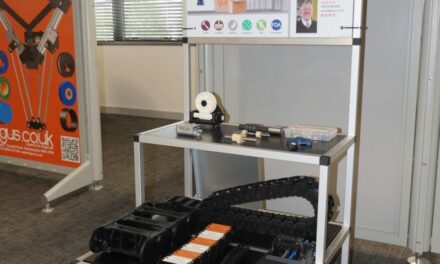Canadian company LyteHorse Labs has designed a novel all-terrain electric vehicle, suitable for many applications and environmental conditions. igus bearings have helped to make the vehicle maintenance-free and corrosion-free even in the most inhospitable environments.
Brad Bonk has always had a knack for designing unique motorcycles and hot rods. With his creative talent, he eventually designed a stand-up electric vehicle for transiting golf courses. But he and brother Allen soon realised there was a lot more potential in their electric vehicle. “After taking it to the golf course, Brad and I connected the vehicle to my SUV to see if it could pull the car,” Allen recalls. “And yes, that crazy little scooter thing was able to drag a 2.2 ton SUV across the car park.”
Designed and built with four independent hub motors, the vehicle has a switchable all-wheel drive for maximum traction and stability, becoming a perfect mode of transport for a wide variety of uses – leisure, agricultural, manufacturing, exploration and more. Using igus tribopolymer bearings is ideal as they are lightweight, lubricant- and corrosion-free and therefore particularly low-maintenance.
The LyteHorse is versatile: it can transport 350kg on pavements and stairways in urban settings, can therefore be used in the police, in rescue operations, on rough terrain, in mines, warehouses, farming or forestry. “In the past, horses were often used in many of these scenarios but they are expensive to train, comparatively slow and the rider’s posture is not ideal,” says Bonk. LyteHorse, that is being described as “Horse 2.0”, can travel almost anywhere, electrically and silently, with a range of up to 160km, and is waterproof up to a depth of 60cm.
For the vehicle to operate with minimal technical glitches in these varied and challenging conditions, the longevity and zero maintenance of the components was particularly important to the designers. After extensive tests with steel and nylon bearings, LyteHorse Labs selected lubrication- and maintenance-free polymer bearing technology from igus to use in the suspension and steering.
“We could not meet our requirements with traditional bearings because they are susceptible to dirt, salt water and extreme temperatures,” Bonk explains. “In the end, the iglidur J bearings convinced us in terms of performance, durability, reliability and cost. Without the targeted advice of igus, we would certainly not be where we are today with the product.” The Canadians company is optimistic about the future and is expanding into the US market, with its immediate focus on winning government contracts and building a distribution network.



